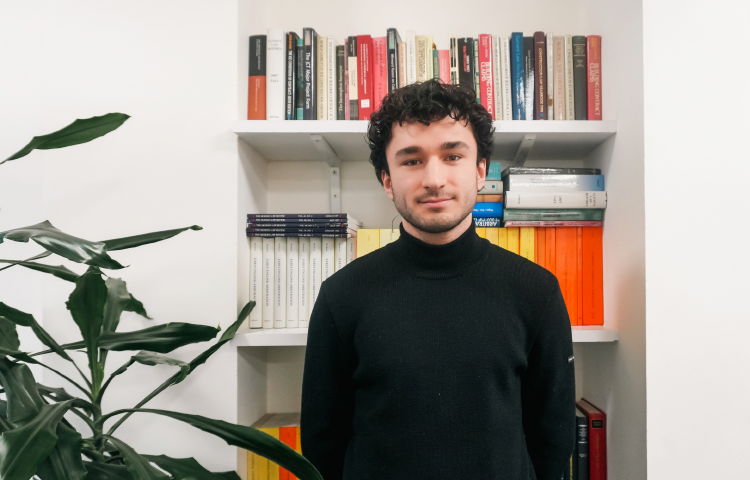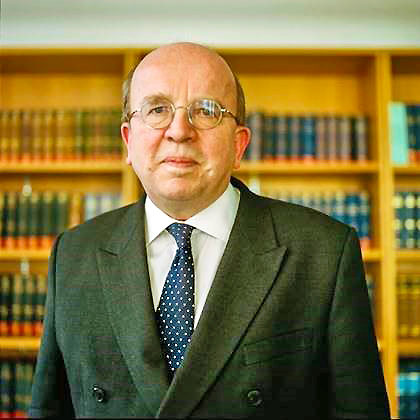Dr Johanne Cox on her move to being an independent arbitrator
We speak to Dr Johanne Cox FCIArb about her move to independent arbitrator and challenges in the industry.
Dr Johanne Cox FCIArb was drawn to arbitration because of its international dynamic.
“In arbitration, a dispute can involve a cross-border contract or international project, any type of industry, different laws, the parties and/or counsel may be from different countries, and the arbitrators are often different nationalities. It keeps life interesting,” she says.
After studying politics and law at the London School of Economics, she was awarded a training contract with Clifford Chance in 2001. Since then, she has worked in London, Paris, Cairo, Dubai, and Doha.

First appointment
In addition to her experience in commercial and construction arbitration, Johanne has substantial experience in investment treaty arbitration and has acted as counsel representing both foreign investors and states in International Centre for Settlement of International Disputes (ICSID) arbitrations. On her first appointment, Johanne reflects, “My first appointment as arbitrator was when I was practising in Dubai. I was appointed as a sole arbitrator by the Dubai International Arbitration Centre (DIAC). I had, at this point in my career, many years of practicing experience but it’s not easy to get your first appointment – you have to make an effort to let the community, including the arbitral institutions, know that you are available and have the experience.”
One of the highlights of her career so far are the years she spent working in Cairo. “I moved to Cairo in 2010, just before the Egyptian revolution, and I experienced first-hand the political upheaval that followed. There were many arbitrations, including ICSID ones, after the revolution. Investment treaty law is one of my areas of specialisms, so I found myself in the right place at the right time,” she explains. In Cairo, she built a successful international arbitration practice for a leading law firm, and her time in Dubai and Doha broadened her horizons even more.
In 2024, she decided to retire from partnership in a London law firm to join chambers as an independent arbitrator. “What I enjoy most is sitting as arbitrator and, by joining chambers, I do not have conflicts when it comes to appointments,” says Johanne. She’s glad to be based back in London and comments, “London is a great city to work in. There’s a real variety of arbitrations that connect with London whether through the rules of arbitration, a party or counsel being based here, the substantive law of the dispute, or the seat of arbitration. It’s easy to travel from here and to stay connected with the rest of the world.”
Challenges in arbitration
Three big challenges in arbitration that come to Johanne’s mind are the increased deployment of guerrilla tactics in proceedings, the continued gender imbalance in the appointment of arbitrators, and the need to expand the pool of arbitrators that are appointed by parties and co-arbitrators.
Johanne explains that guerrilla tactics in arbitration are where parties or their legal representatives deliberately try to frustrate the process through procedural tactics that can border on the unethical or even cross the line. “On the issue of guerrilla tactics, the 2021 ICCA Guidelines on Standards of Practice in International Arbitration is a start but there is more that can be done.” she says.
Another big challenge in arbitration is gender equity. Johanne comments: “On the challenge of the gender imbalance in the appointment of arbitrators, arbitration centres have made a commendable effort to address this by directly appointing more female arbitrators but there is still a long way to go.” The latest London Court of International Arbitration (LCIA) Annual Casework Report reports that in 2022 the percentage of party and co-arbitrator selected women arbitrators was only 19% and 23% respectively. “The gender imbalance can only change if law firms make a concerted effort to recommend female as well as male arbitrators to their clients, and if co-arbitrators consider selecting a woman as chairperson to the tribunal – and then actually appoint,” she says.
Johanne also highlights the need to expand the pool of arbitrators that are appointed to tribunals by parties and co-arbitrators, “another challenge is not about gender but about expanding the pool of arbitrators – both male and female – that are appointed to tribunals, especially by the parties who, in a three person tribunal, each appoint or nominate an arbitrator, and the co-arbitrators who then appoint the chair. Again, law firms and their clients will be the driver for this.”
Communication skills and other essentials
We asked Johanne about the importance of communication skills in ADR. For Johanne, the importance of soft skills is still overlooked. “The legal industry is a people focussed one – from helping clients to working and collaborating with other lawyers and professionals,” she says. As well as cultivating their people skills, networking is another skill that she recommends young ADR practitioners work on.
It all comes down to communication skills. She continues: “The top skills lawyers starting out in ADR should cultivate are, in my view, their research, drafting, and communication skills. Advocacy before tribunals, especially on larger commercial cases, comes later.”
Additionally, a commitment to learning is key. “Continuous training and development are key to ADR although nothing beats hands on practicing experience,” she explains. “Many chambers and law firms host seminars (in person and virtually) which are free to attend and can be very informative.”
Her advice for novice arbitrators is to be thorough, to make sure the procedure is fair to each party, and to ensure that the final award covers all the issues it needs to. It is also important to ensure that any formalities are met when issuing the award.
Technology is already routinely used in arbitration, for example, in disclosure and for virtual meetings and hearings. Artificial intelligence (AI) will, in the future, feature more heavily. To prepare, practitioners should familiarise themselves with new technologies. “But there must be safeguards to ensure any use of technology in the arbitral process is appropriate and that the human touch is not lost – after all, not every issue is clear cut and behind every arbitration are people, whether arbitrators, counsel, witnesses, experts, or the parties,” she advises.
Dr Johanne Cox FCIArb is based in London at ArbDB Chambers and arbitrates both common and civil law disputes. She has over 20 years’ experience in international arbitration and has led arbitration practices in London and Cairo. She spent 10 years in the Middle East and North Africa (Egypt, the UAE and Qatar) between 2010 and 2020. In addition to her experience in commercial and construction arbitration, Johanne has substantial experience in investment treaty arbitration and has acted as counsel representing both foreign investors and states in ICSID arbitrations. She is author of Expropriation in Investment Treaty Arbitration (Oxford University Press, 2019).



